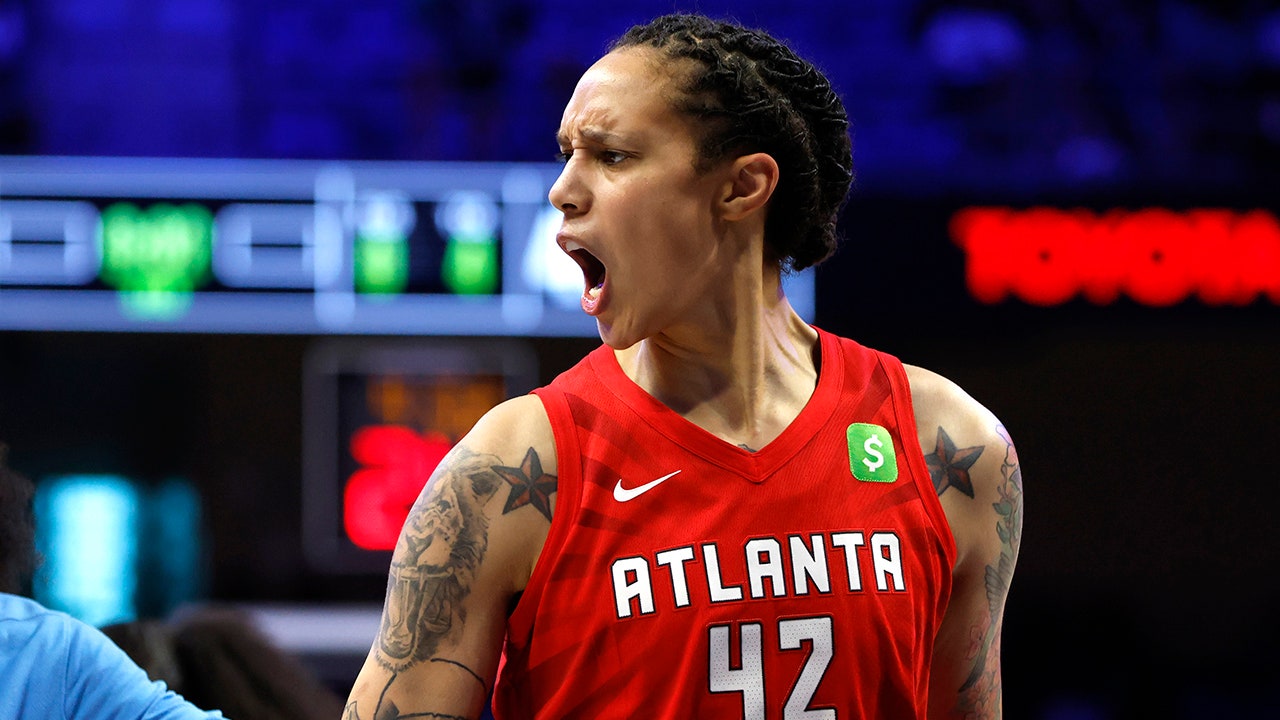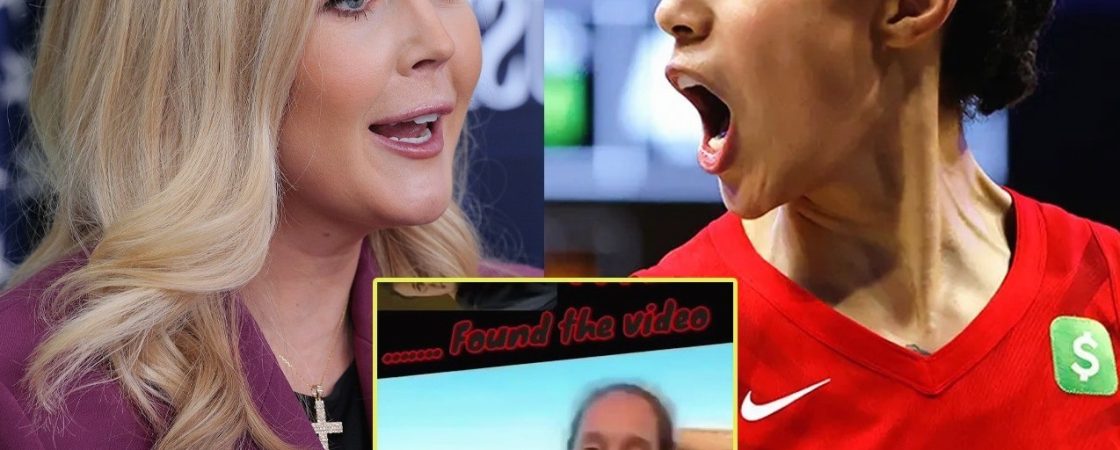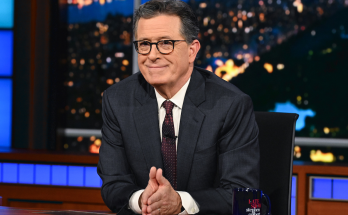In a highly controversial statement, Karoline Leavitt referred to WNBA star Brittney Griner with a derogatory term after allegedly learning details about her gender. This comes as the WNBA announces plans to introduce mandatory sex testing for all players starting next season — a decision that has ignited intense debate over gender identity and inclusivity in women’s sports.
**Controversy Erupts as Karoline Leavitt Targets Brittney Griner Amid WNBA’s New Gender Policy**
In a moment that has sent shockwaves across both sports and political circles, Republican political commentator Karoline Leavitt has drawn harsh criticism after making a derogatory remark about WNBA star Brittney Griner. Leavitt’s comments came in response to a recent and highly controversial policy announcement from the Women’s National Basketball Association (WNBA): starting next season, all players will reportedly be subjected to mandatory sex verification testing.
According to sources, the league’s decision was driven by increasing public and internal debate over gender identity, biological differences in competition, and the rising pressure to define clearer eligibility rules in women’s sports. The policy, which remains under internal review, has already sparked fierce backlash from players, advocacy groups, and civil rights organizations, who argue that such measures are invasive, discriminatory, and counterproductive to the cause of inclusivity.

The situation escalated dramatically when Karoline Leavitt publicly commented on the issue, calling Brittney Griner a “sh!t” — a slur that quickly went viral online. The insult came shortly after speculation around Griner’s gender identity resurfaced in fringe online spaces, though there is no credible evidence suggesting any inconsistency in her legal or medical records.
Leavitt’s remark has drawn widespread condemnation. LGBTQ+ advocacy groups have labeled her comment as “deeply hateful,” while fans and public figures across the political spectrum have called for accountability. “This kind of language is dangerous,” one WNBA executive stated anonymously. “It fuels discrimination, stokes division, and has no place in sports or society.”
Brittney Griner, a two-time Olympic gold medalist and former WNBA champion, has not yet publicly responded to the insult. In past interviews, she has spoken openly about her experiences with discrimination, saying, “Being different doesn’t mean being less.”
As the WNBA prepares for a potentially divisive rollout of its new policy, the spotlight remains fixed on the intersection of athletics, gender, and human rights. Whether the league will proceed with mandatory sex testing—or face mounting legal and ethical challenges—remains to be seen. What is certain, however, is that the debate is far from over.



